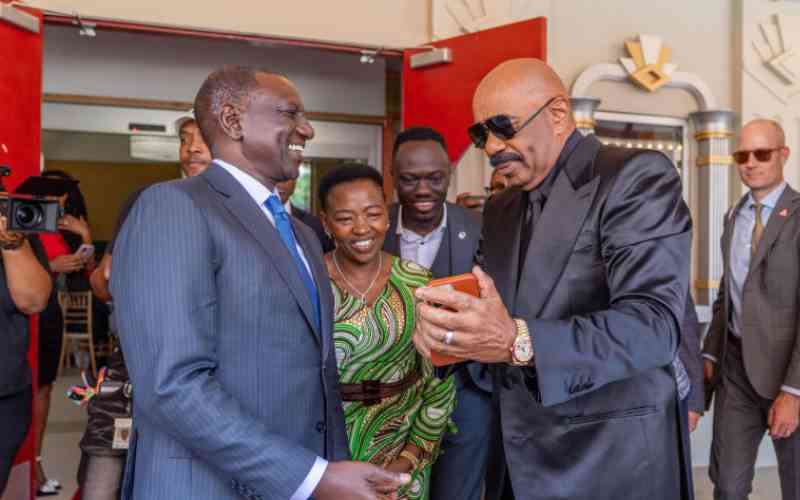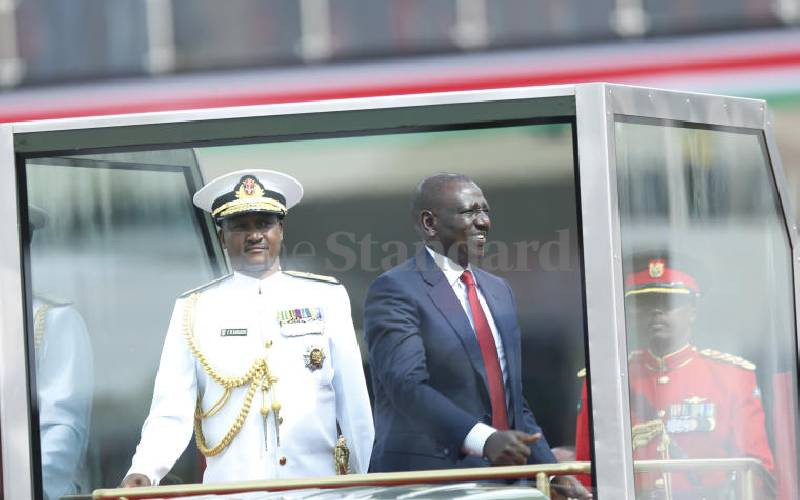
This has been Tyla Laura’s year.
The 22-year-old South African singing beauty bagged a Grammy for her hit track Water, a song that has been on top of music charts all over the world making her one of the most sought for stars of 2025. She beat other music bigwigs among them Nigeria’s Burna Boy, Davido, Ayra Starr and her fellow South African Musa Keys to the prestigious win.
It was the year that saw the Grammy Awards introduce the Best African Music Performance category in recognition of the year’s song from Africa.
As South Africa made its presence felt at the Crypto.com Arena in Los Angeles, California big stage – together with the Afro-fusion creators from West Africa, Kenya was nowhere near after all its buzz of Gengetone went flat south. And what a year it has been for the Kenyan musicians who have had dismal, if any, impact in the continental arena, leave alone the world stage.
However, behind the scenes, the home of Kapuka and Genge has been on a mission to justify why it should be on the table of music greats. It is the highest music bid ever witnessed in the land, one that is costing a lot of money and innovative maneuvers. It is now evident that Kenya wants the Grammys home. But just how does the most prestigious awards – a Los Angeles pride – find home in Kenya?
Bid deal
The big question creates a big in-tray for the new CS of Youth Affairs, Creative Economy and Sports Salim Mvurya following the push by his two immediate successors – Ababu Namwamba and Kipchumba Murkomen – to make President William Ruto’s Talanta Hela ambitious push for the creative economy make sensible ‘cents’. It is a journey that has seen delegations shuttle between Nairobi and Los Angeles and back in search of a ‘Kenyan sound’.
During a town hall meeting held last month at the Kenyatta International Convention Centre (KICC), President Ruto said the government had invested Sh500 million in its Grammys bid deal.
“The Sh500 million is already paid. This is not just a plan. It is a done deal. I am confident that our efforts are on track as the representative for the Grammys here can attest,” said Ruto.
Initial reports from Grammy Awards insiders had it that they had denied the reports on Kenya’s involvement in the said investment. The indications were that the Grammy Awards does not receive funds from foreign governments.
This came as many translated the Kenyan Grammy hype news to mean that Kenya would be hosting the Grammy’s in Africa just like Seville, Spain hosted the Latin Grammy, the first one to be hosted outside the US, this year.
“There is something we are doing for the Grammy awards for Africa. And we have actually instructed the State Department to pay so that the Grammy awards can be hosted in Kenya. There are a few things to unlock and this gentleman (a Grammy representative) has an appointment with you (President Ruto) this week to unlock that part,” Dennis Itumbi – the Head of Creative Economy and Special Projects in the Executive Office of the President – said during the town hall event in affirmation to Ruto’s pledge.
Clarification
When he introduced the issue in April, President Ruto said the government had signed three agreements during his US visit last year one of them being with the Grammy Global Ventures “which places Kenya at the forefront of bringing the global value chain of the Grammys to Africa through the Pan Africa Recording Academy.
Stay informed. Subscribe to our newsletter
“Kenya is among the four countries that will now participate in the Grammys and we have already put forward our bid to host the African headquarters of the Grammys,” Ruto said in April during a State House ceremony that hosted Kenyan creatives.

As the heat hit home on the country’s involvement in the Grammys, the Ministry of Youth Affairs, Creative Economy and Sports made a “Clarification on the agreement between the Ministry and the Grammy Global Ventures (GGV)” two weeks ago.
The explanation by the then CS in the Ministry, Kipchumba Murkomen, had it that in September, the government and GGV signed an agreement in which both parties committed to collaborate in the establishment of the Africa Academy headquarters and centres in Kenya.
Murkomen said the Africa Academy headquarters and centres where Grammy-branded events, which will be held in the region. Rwanda, Nigeria and South Africa, he said, also signed MoUs and agreements for consideration to implement the Africa Academy as founder members.
“The Grammy Global Ventures is the international arm of the Recording Academy, the company that presents the Grammy Awards. By hosting the Africa Academy or Centre in Kenya, our music creators stand to benefit from the Recording Academy’s technological resources, brand, networks, and expertise to create original music content that will showcase our cultural heritage to a broader audience. In addition, it will enhance the visibility of our artistic scene and position our country as the epicenter of entertainment in Africa,” said Murkomen.
“We have met all our financial obligations as stated in the agreement by making the 4th and final installment of the net fee USD 2,500,000 this month (December),” the CS said.
The current market rate suggests that Kenya could have part with about Sh500 million – the amount the President announced – in this project so far.
There is a twist to the musical affair. Indeed there is no guarantee as yet that Kenya will land the deal.
According to the government, for the Africa Academy to be realised, at least two founding members have to pay an equal fee of UD 2,500,000, money that is to be used to set up and operationalize the Africa Academy headquarters in the initial stages. The agreement is that if more than two founding members pay the fee, GGV will use the excess money equally in the founding member countries to stage Grammy events.
“We are ready to host the Africa Academy or its centre in Kenya once it is confirmed,” Murkomen said.
Other than the Grammys, it has been a year when the government made strides in the creative sector by focusing on the Hollywood space. It is a year that saw film hot shots set foot in Kenya after the then-CS Ababu Namwamba visited Los Angeles to ink a groundbreaking deal with Hollywood’s Invention Studios that opens the door for the growth of Kenya’s film industry.

Talanta Hela
The deal, signed at the Kenyan Consulate in Los Angeles by Ababu for the Government of Kenya and Invention Studios CEO Nicky Weinstock, was the rapid realisation of a commitment made by President Ruto when he visited LA earlier that week disclosing that the Ministry of Youth Affairs, the Arts and Sports was instituting a comprehensive Incentives framework to strategically position Kenya as a film making destination of choice.
“Invention Studios will promote Kenya as a filming destination, shoot movies in Kenya, and support the Talanta Hela Initiative by growing talents and promoting the protection of Kenyan creatives’ intellectual property and access to royalties,” Ababu said.
During the talks attended by the then Kenya’s Consul General in Los Angeles Ted Kwakwa and top Hollywood agent Ozi Menakaya, it was agreed that Invention Studios would offer technical and advisory support to Kenya for the forthcoming YouthConnekt Africa Summit.
But even with the efforts to get the creative industry working from an international perspective, back home, the music sector continued to get riddled by the curse that has been the existence Collective Management Organisations (CMOs) – music societies – whose differences with the government saw them get denied licenses.
For the best part of the year, the government was engaged in court battles with the Music Copyright Society of Kenya (MCSK) and the Performers Rights Society of Kenya (PRiSK) which saw the Kenya Copyright Board, the government body mandated to regulate the societies withdraw their operating licences. The differences were sparked by a sanctioned audited report pointing to mismanagement and misappropriation of funds made for artistes’ royalties.
As a result, the government moved in and granted a one-year license to the Performing and Audio-Visual Rights Society of Kenya (Pavrisk) to oversee all music and performer rights in the audiovisual sector, this following a two-month selection process conducted by Kecobo seeking companies with the requisite expertise to fulfill the role of a CMO.
In his Jamhuri Day speech three weeks ago, Ruto directed the Kecobo and other stakeholders including e-Citizen to establish a better and working structure.
“It’s unacceptable that an artist earns as little as Sh10,000 a year while those tasked with collecting their royalties pocket millions monthly…The Kenya Copyright Board, in conjunction with industry players and e-Citizen, must establish a transparent, real-time system for royalty collection and distribution to rightful owners and beneficiaries,” Ruto said.